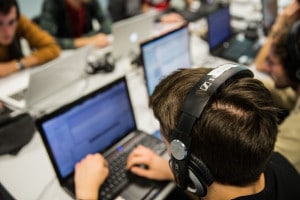Detecting mental disorders through social media
What if social media could be used to monitor the mental health of internet users? That is the goal of the Canadian research project "Mood," in which two researchers from Montpellier are participating at the Montpellier Laboratory of Computer Science, Robotics, and Microelectronics (University of Montpellier – CNRS).

Every minute on Facebook, 293,000 statuses are updated, 510,000 comments are posted, and 136,000 photos are published. It's a veritable gold mine of data for researchers, and soon for doctors, who will be able to monitor their patients suffering from mental disorders through their social media posts.
How?"Using text mining and discourse analysis tools that enable us to understand how internet users feel by deciphering their posts," explain Sandra Bringay and Jérôme Azé, researchers at the Montpellier Laboratory of Computer Science, Robotics and Microelectronics (LIRMM, University of Montpellier – CNRS)."We are developing algorithms that can, for example, identify emotions such as sadness or self-loathing in discourse to identify internet users who are struggling," explains Sandra Bringay.
Prevention 2.0
What about privacy? "The Mood project does not aim to identify specific internet users; it processes anonymous data, " reassures the researcher. However, it does provide a better understanding of how people express themselves and allows researchers to test the algorithms they have developed. "These results could be used by doctors, for example to monitor the mental health of their patients who have given their consent, of course,"explains Sandra Bringay.
"Identifying patients suffering from depression, anorexia or harassment through social media will enable us to provide them with better care," predict the researchers. These findings could be particularly useful in preventing suicide, which claims three times more lives each year than road accidents.